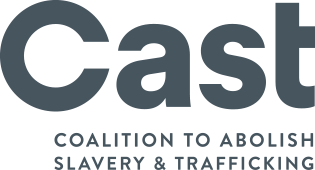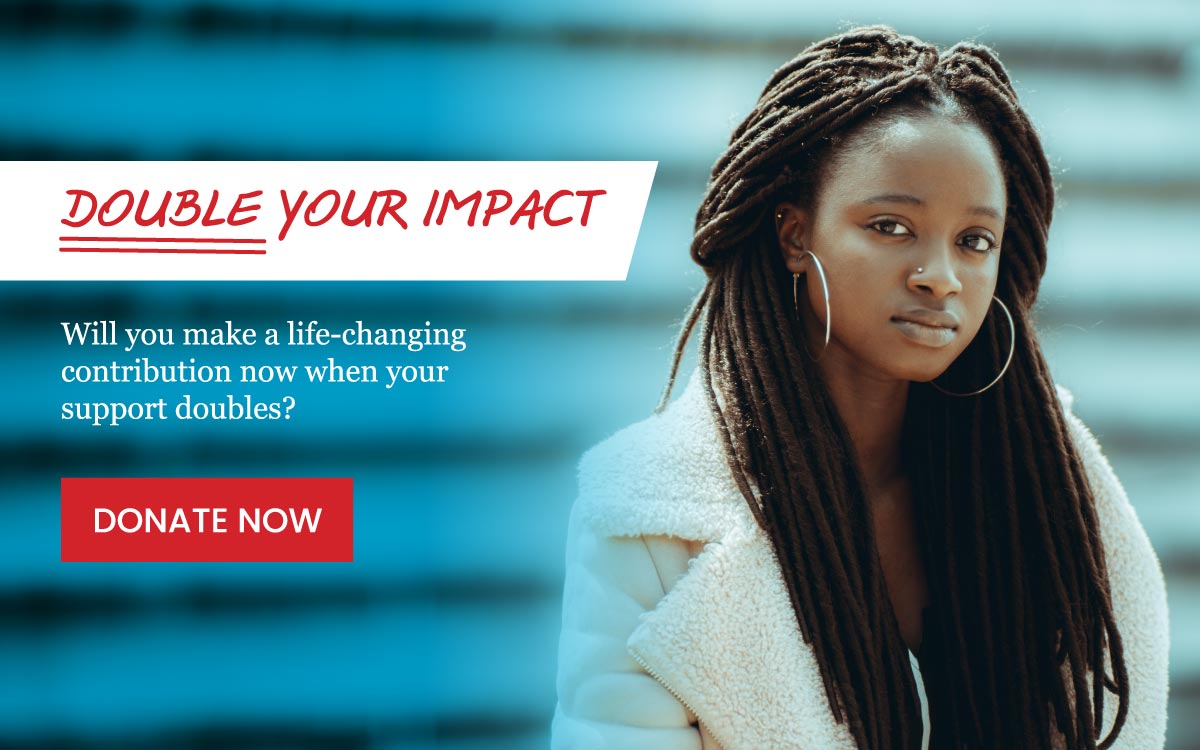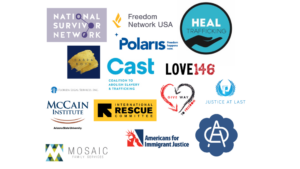It seems like whenever human trafficking is in the news, we get a sensational view and not the full picture. A celebrity has been arrested for sex trafficking, and all the victims are young women. A company has been caught paying their immigrant workers nothing.
What should be making the news is that our own social systems are enabling human trafficking, and that it is happening right alongside homelessness. These are hard truths but they tell us what needs to be done. With a new Mayor of Los Angeles and changes in the City Council, let’s turn our attention to what we are doing – and could be doing – to stop human trafficking from happening in Los Angeles and elsewhere.
What makes someone vulnerable to homelessness also makes them vulnerable to human trafficking. For many survivors, a lack of safe housing was not only a cause of their trafficking experience but also a result of it. Many people are forced or tricked into living with their trafficker or in a place they cannot easily leave. When they do leave, most have nowhere to go and become vulnerable again on the streets. They cannot return to their home neighborhood or their families because traffickers threaten to harm them or their loved ones. Many who were trafficked when they arrived in the US do not know where they are or who to turn to, and do not speak the local language. Almost nowhere is safe.
As an agency serving survivors of human trafficking in Los Angeles, the Coalition to Abolish Slavery and Trafficking (Cast) is acutely aware of the housing and homelessness crisis in our city and county. Cast runs a 24-hour hotline for anyone seeking help finding safety and resources. Over half of the 2,210 calls last year were from potential victims and most (over 1,000 people) were experiencing homelessness. Housing is human trafficking survivors’ number one need.
Since the homelessness crisis in LA has created the conditions for human trafficking, then addressing it properly will help prevent human trafficking.
For 20 years, Cast has been the only agency providing dedicated housing for human trafficking survivors in Los Angeles: emergency shelter for up to 90 days, transitional shelter for up to two years, and wraparound services while survivors get back on their feet, like counselling and legal aid. Cast served 1,625 survivors and their family members last year.
But we are facing increasing and unprecedented demand for housing – like everybody else. Our two shelters are dedicated to female-identifying adults, so we cannot provide housing to males or survivors with children and are often full. So, my team is on the phone most days, asking other shelters if they have room for survivors of human trafficking.
Nine times out of ten, the answer is ‘no’.
It is unacceptable that when survivors of human trafficking bravely escape their situation, they often have nowhere safe to go. When Larissa called our hotline, she and her three children – the youngest, a baby – were sleeping in her car, hiding from the trafficker. Since Cast’s emergency shelter (being run from a hotel during COVID) was full, we called over 30 other shelters but none could take them in. So Cast provided services to Larissa and her children in her car for a week, until a room at our shelter became available. They stayed with us for a month and then we supported Larissa to find a safe, affordable, permanent home, keeping in touch with her for months after to make sure she settled in and knew her rights as a tenant.
Cast supports survivors to find permanent housing but rents in LA are at their highest ever, making leaving a shelter harder than it already is. If survivors cannot afford housing, they cannot easily access services or get a job, and are extremely vulnerable to being trafficked again.
This is an untenable situation. How can it be solved?
First, we need public agencies to include human trafficking in their victim housing and homelessness initiatives. We should not have to plead to be included and consulted, but we often do. Maybe it’s because well-meaning public servants think that human trafficking is happening somewhere else and not in our own neighborhoods. Maybe they don’t understand that human trafficking survivors need specialized services to meet their special needs. Who deserves housing?
Second, we need a dramatic increase in funding, especially for permanent housing, in line with the real world we are in. At the height of the COVID-19 pandemic, governments made large sums available to respond to the risk of homelessness, like rental assistance and emergency housing vouchers, but these have run out. The fallout of COVID, inflation and economic instability is only increasing the risk of human trafficking happening. We know that hundreds more survivors will call us this year, saying they are homeless and in danger. What do we tell survivors we can’t help simply because we don’t have the funds?
If we want to both prevent human trafficking and do right by survivors, let’s agree on what might make the biggest difference and let’s make it happen: a safe, affordable home for everyone. Addressing the housing and homelessness crises in Los Angeles – once and for all – will also help stop human trafficking.
Read our 2022 Impact Report to learn more: 2022 Impact Report




